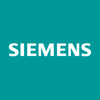Home
Siemens Xcelerator Community
The Siemens Xcelerator Community brings together executives, leaders and makers, experts, partners, and Siemens in an exclusive community to actively shape the future of industrial operations.
Events
Wednesday, Dec 10, 2025
3:00 PM - 4:00 PM GMT
Content
External Content
AI will reshape work across industries, with Gunther Beitinger among other AI leaders highlighting human-AI collaboration as key. From a Siemens view, continuous reskilling and augmented expertise dri
Jan 22nd, 2026 | Views 1
Blog
Jan 19th, 2026 | Views 47
Video
The AI with Purpose Summit is Europe’s premier leadership event for industrial AI. In 2025, more than 850 industry leaders attended the event in Munich. More than 200 of them contributed in 111 talks, panels and other sessions.
Hosted by Siemens once a year, the AI with Purpose Summit fosters critical engagement and collaboration to unlock AI’s true potential in the industrial world.
Leading industry executives, experts, entrepreneurs, analysts and media representatives are exclusively invited for unparalleled exchange and networking.
Innovative session formats demonstrate how AI, domain know-how and data are transforming critical systems – advancing productivity, sustainability, and societal progress.
Jan 13th, 2026 | Views 39

